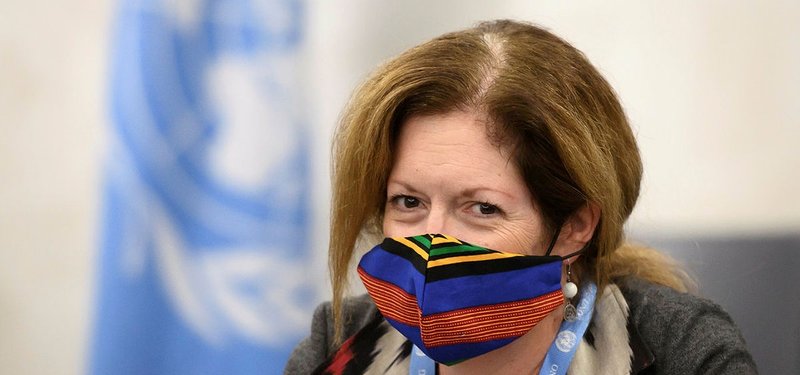
UN envoy 'quite optimistic' on talks between Libya's warring sides
The U.N. envoy for Libya said Wednesday the two warring factions have agreed on issues that “directly impact the lives and welfare of the Libyan people,” noting that the thorny work to cement a cease-fire in the restive North African country will continue.
- World
- AFP
- Published Date: 12:44 | 21 October 2020
- Modified Date: 06:18 | 21 October 2020
The United Nations' acting Libya envoy said on Wednesday she was "quite optimistic" that ongoing talks between the warring sides would lead to a lasting ceasefire after they agreed in the negotiations to reopen land and air routes across front lines.
Speaking at a news conference midway through week-long talks in Geneva this week, Stephanie Williams said the two sides had also agreed to maintain "the current state of calm on the front lines and avoid any military escalation".
Libya has been split since 2014 between the internationally recognised Government of National Accord (GNA) in Tripoli and Khalifa Haftar's Libyan National Army (LNA) in the east.
This week's meeting between GNA and LNA military negotiators in Geneva will be followed by a political dialogue in Tunis from Nov. 9, Williams said, adding that foreign countries involved in the conflict "need to take their hands off Libya".
Libyan oil output resumed in August after an eight-month blockade by the LNA but state producer National Oil Corporation (NOC) has warned of risks posed by the Petroleum Facilities Guards (PFG), made up of local armed groups.
Williams said the sides in Geneva had agreed to delegate PFG commanders from both east and west to work with an NOC representative to present a proposal to restructure the guards to "ensure the increase and continuation" of oil flow.
She added that they had agreed to make progress on an exchange of detainees between the warring sides and that the first flights between Tripoli and the eastern city of Benghazi would resume this week.
Williams added that GNA Prime Minister Fayez al-Sarraj's announcement that he intends to step down by the end of this month "should help end the long period of transition" and move towards a democratically elected government and institutions.

